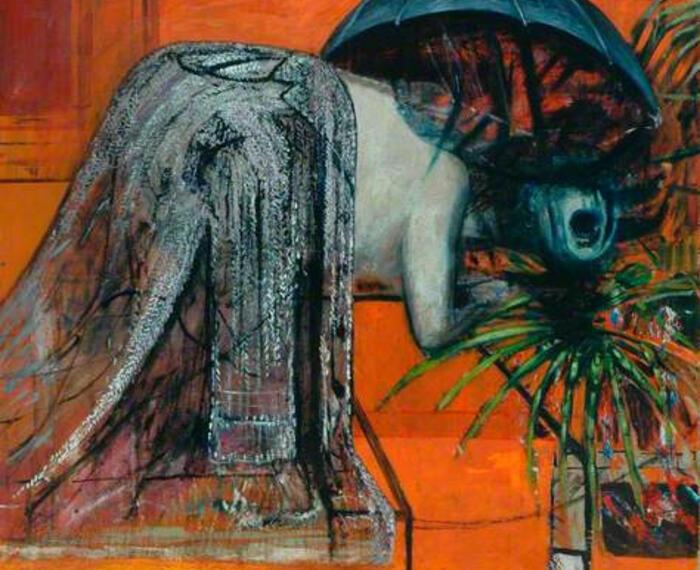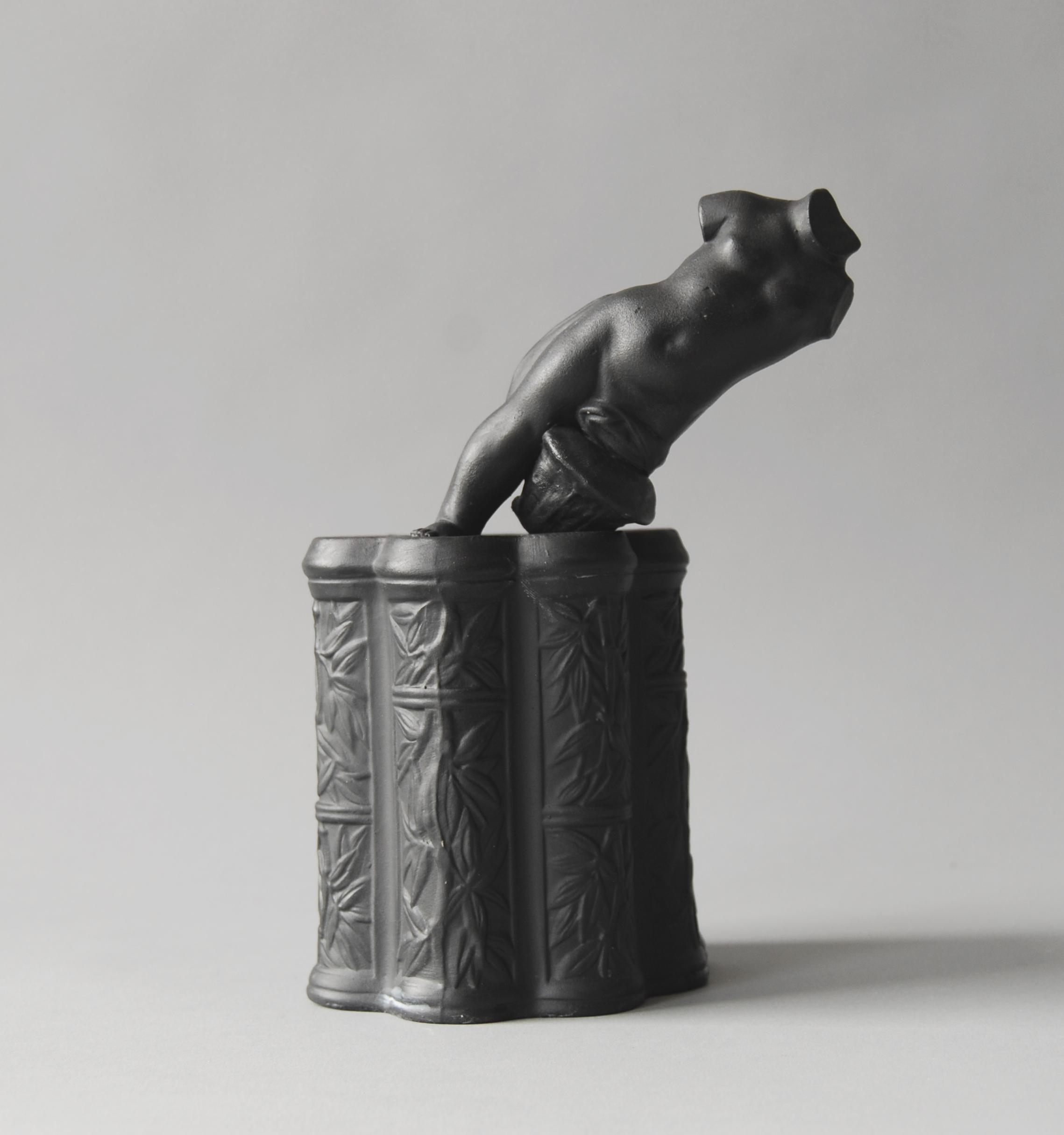Matt Smith is well known for his site-specific work in museums, galleries and historic houses, and for his studio practice. He is interested in how history is a constantly selected and refined narrative that edits out marginalised histories and presents itself as a fixed and accurate account of the past.
Both Spouts with Large Pearls and Falling are taken from the artist’s most recent Wunderkammer series. Cabinets of Curiosities, or Wunderkammern, first became popular in Renaissance Europe. These collections, sometimes taking up entire rooms or smaller display cabinets, typically included rare objects that defied classification. During the Victorian period, specialists and amateurs vied to find ever-more unusual specimens for their collection, leading to ‘faked’ objects appearing, including mermaids and unicorn horns, combining contrasting elements to make a new fantastic relic.
Smith draws on the rich history of the Wunderkammer to ask questions about our present society’s accepted norms. Falling, for example, disrupts expectations of perfection. Spouts with Large Pearls meanwhile is characteristic of Smith’s often humorous references to contemporary gay culture and draws attention to the sexual connotations often present but overlooked within art and history. Both works are made in black parian, a fine, unglazed porcelain resembling marble, invented in around 1845 by a Staffordshire pottery manufacturer. Parian allowed manufacturers to mass-produce sculpture quickly and cheaply. It is an inherently unstable material and Smith embraces this unpredictability and its implications on the interpretation of his work.
These new acquisitions complement National Museums Liverpool’s existing holdings of sculpture and decorative art, and in particular its highly significant Wedgwood collection, which includes notable examples of the firm’s black basalt ware. They also continue the museum’s aim to embed and foreground queer and LGBT+ histories and narratives in the collection.


